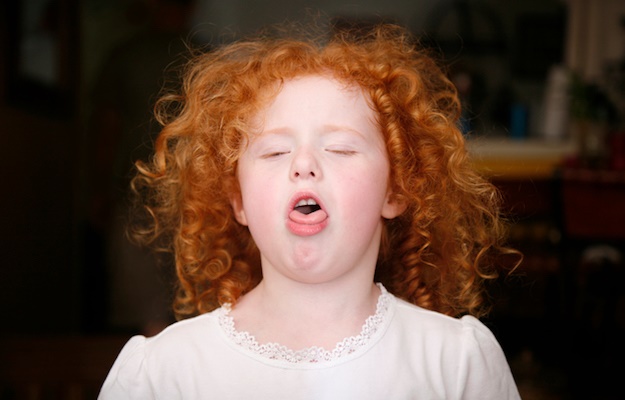
Coughs are common. Surveys suggest that at any one time, up to 1 in 3 children or adults are suffering from a cough. In fact, coughs are among the most common complaints for which people seek medical advice. A study shows that a new cough is the third most common reason for visits to the doctor and up to around one in three people seeing a specialist chest physician do so because of a cough that is not getting better.
It is likely though that these people represent the tip of the iceberg as most people with a cough don’t seek medical help or advice for their symptoms at all.
So if most people don’t seek advice for their cough, how do they know they're treating it effectively?
What is a chronic cough?
Patients with chronic cough may cough hundreds or even thousands of times a day, and a chronic cough can persist for months or even years.
The physical and psychological impact and effect on day-to-day activities and social life can be enormous. Coughs may be associated with significant discomfort including dizziness, retching, excessive sweating, aching and sometimes even urinary incontinence. Coughs interrupt sleep and can be a considerable cause of irritation to other family members. They may become embarrassing, causing some to feel self-conscious enough to consider changes to their daily routine.
In children, coughs may be disruptive at school and during the night and are often a cause of parental anxiety. In one study, mothers reported a concern their children could die from choking on phlegm or vomit.
It’s not surprising then that even if they don’t seek help from their doctor, people with coughs do seek relief elsewhere. Last year, South Africans spent around half a billion rand on cough syrup medicines alone.
So is this spending justified?
Not according to clinical trials. In 2014, the Cochrane Institute, which regularly reviews available studies around medicine effectiveness and safety, reported that they could find no strong evidence illustrating the benefit of cough medicines for either children or adults. In particular, the cough syrups evaluated for coughs in children did not appear to show any benefit over placebos.
Over 20 years ago the American Academy of Paediatrics cautioned doctors to warn parents about the lack of benefit and potential dangers of some of these remedies.
Of course, not all cough syrups are bad or ineffective but you need your doctor's advice. The cough may be symptomatic of seasonal allergies or a host of other underlying causes.
Is there anything that can be done to relieve the discomfort of a cough?
Taking half a teaspoon of honey before sleep has been shown to provide soothing relief from coughs related to upper airway infection and lead to better quality sleep for both children and their parents than some common cough syrups. Honey is also less expensive and a natural option.
Sucking lozenges or sipping water may temporarily suppress a cough, and the soothing anti-inflammatory effects of lozenges, syrups or even honey may at least temporarily relieve the sensations of throat irritation.
But for many, it is the overproduction and accumulation of mucus or phlegm in the airways which is the cause of a cough. Furthermore, mucus that is not coughed up can become a breeding ground for bacteria, resulting in infection and serious illness. For this type of productive (wet) cough, mucolytic medications like N-Acetylcysteine (NAC) are important, designed specifically to break down the mucus which is causing the cough so the body can reabsorb it and/or make it easier to cough out. Mucolytics have been shown to assist in reducing cough in adults and children.
Adding up the total costs of cough
It is clear that the costs of coughs for South Africans in financial terms are huge. In addition to the money spent on medicines which don’t necessarily work, one should also consider consultations with healthcare practitioners, loss of productivity at work and days of work and school missed.
Since it is a symptom of a respiratory condition, the exact impact on work absenteeism attributable to cough may be difficult to determine, however work absenteeism costs the SA economy around 12 to 16 billion rand per annum. Around 40% of all sick notes are cases without medical diagnosis, however acute bronchitis accounts for about 4% and acute respiratory episodes account for an estimated 10% of absenteeism.
Can these costs be curtailed?
One message that comes through loud and clear is that consumers need to be educated in order to make informed decisions when seeking relief from coughs. When mucus is a problem, adhering to proven and effective treatments such as mucolytics, which address the underlying cause and thin the mucus effectively, may ensure money is better spent.
Parent24's symptom guides:
Not meant to replace professional medical advice!
Identify your child's cough (with sound clips)
Press release supplied by Bespoke Strategic Communications.




 Publications
Publications
 Partners
Partners










